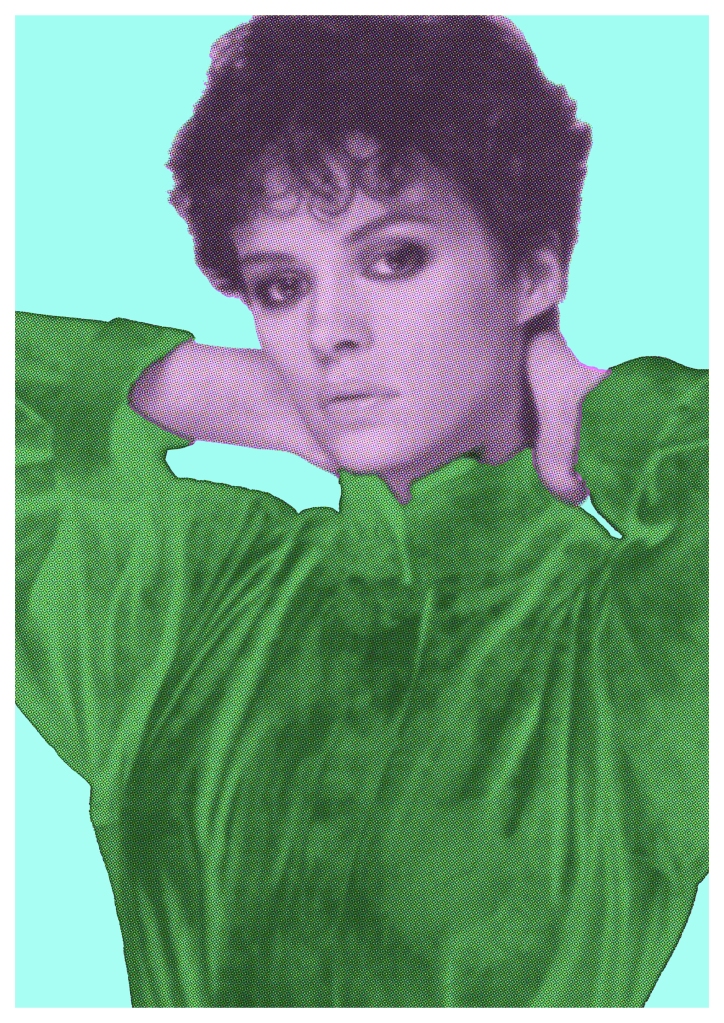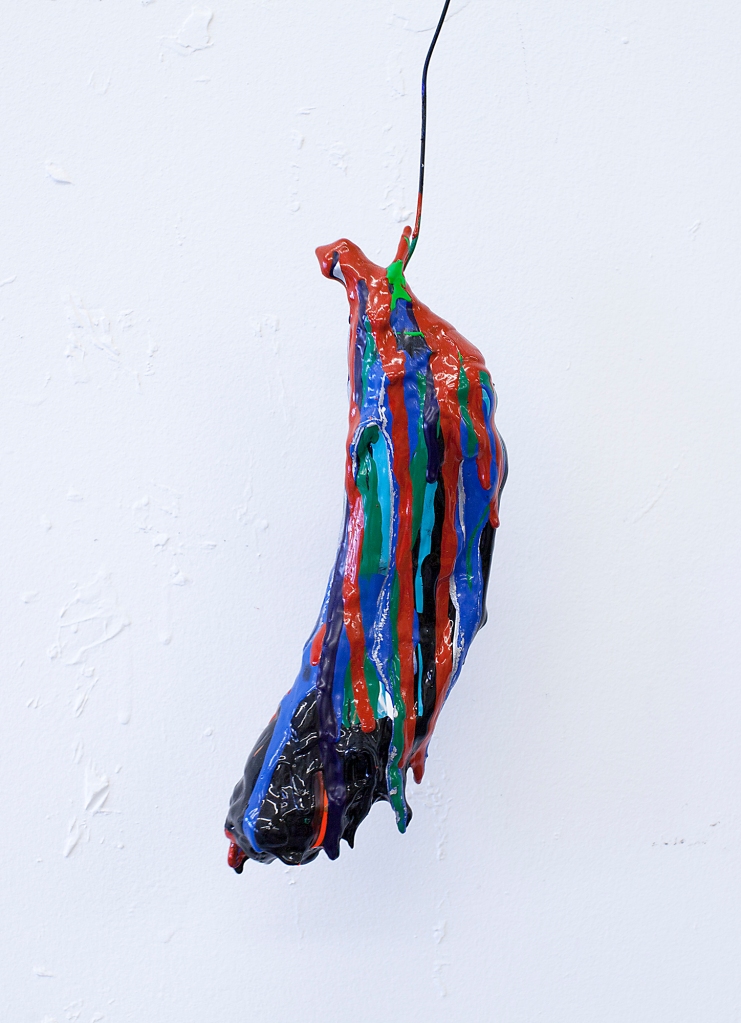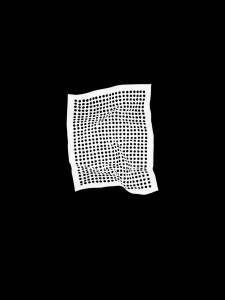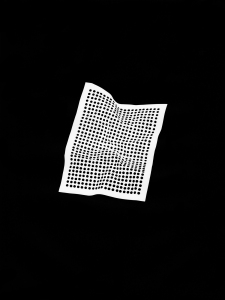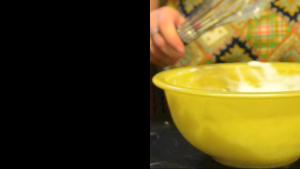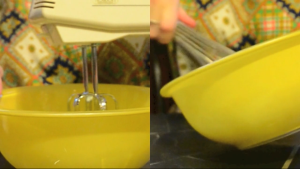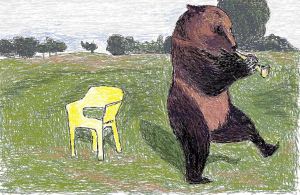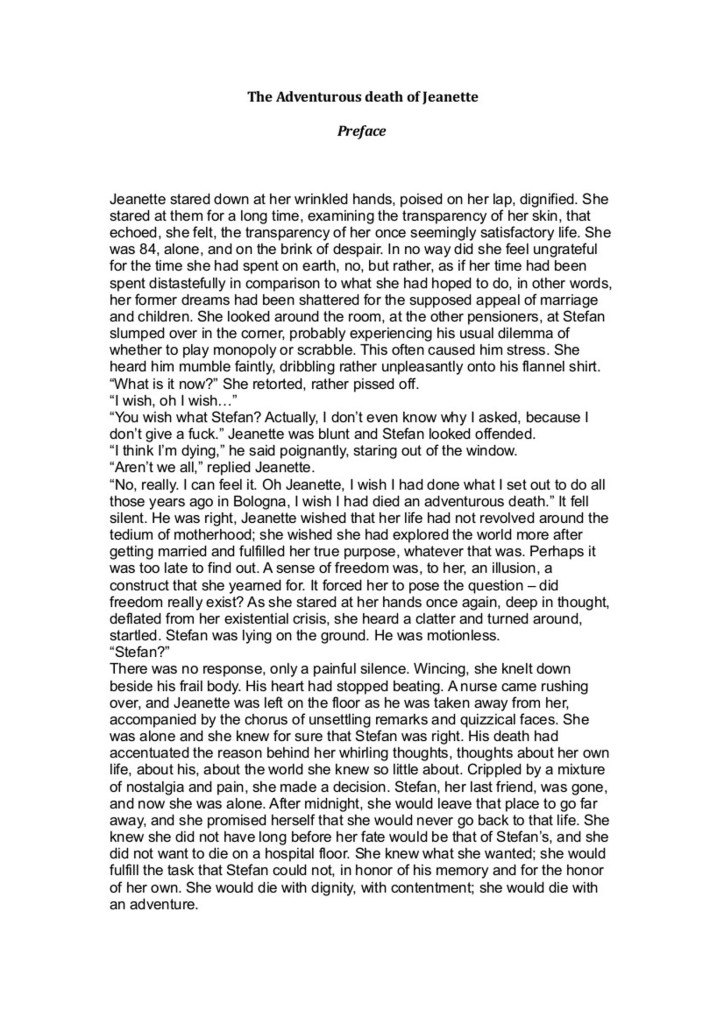Author: lovethypigeon
Zuzanna Kwiecien
Dan Brown
Mads Holm
Bartosz Soban Sobański
John Farrell
Viccy Adams – Benchmark
On a bench, that’s where I found you. It was a chance risk, asking if the seat were free. You might not have been like me at all; you might have been waiting for a friend. It could have been the pause before a scheduled phone call. There were a lot of folk just milling about in the courtyard. I’d already walked a full circle myself. You were just sitting there, as though it didn’t matter that the rest of us were on our feet. There wasn’t really anything to suggest you were simpatico in the set of your face, or how your hands rested so calmly in your lap, but if I’d waited any longer for further signs then the space next to you on the bench would have been taken by someone else.
Shy and quiet are two different things. We know that, you and I. You with your placed ability to sit, composed, in the middle of a crowd that doesn’t involve you. Me, bobbing and fretting at not being contained by a social sphere. When you started answering my questions, I was ready for us to click. You were supposed to fall into admitting relief at knowing me, not just acknowledge that you didn’t know anyone else . Not just keep sitting there, hands resting with the palms facing up to the midday sun. I’m not a fan of playing games. It isn’t fair to play by different rules like that. You and I, we were sharing a bench. We were bonded. A group of two; a kernel that might prime into anything. Two strangers equals a possibility. We should have been the start of a group.
Seeming about as pleased to be talked to as you had been to sit by yourself, I received a couple of placid smiles, some nods of agreement. You weren’t being impolite. It felt as though we were in the same book, maybe, but not on the same page. And I really wanted to be on the same page as you. Nothing personal – it could have been any stranger on any bench. I’m no good at sitting still. I need pages to turn, or buttons to press, or the edge of a sleeve to worry at. Even if there’s something to watch – a screen, or an old-faced woman rooting in a bin – then I can’t fight the urge to turn to someone to point it out. To weigh my opinion against theirs.
Halfway through an anodyne exchange about the hot weather, you stopped talking. It was so abrupt it was as though it were a deliberate part of what you were saying. You shifted a bit on the wooden slats and I thought you might have finally caught the stale desperation coming off me.
Tears began to chute off your face. It was repellent and fascinating, like blood on the pavement. With only the two of us on the bench, I was responsible. I thought I probably hadn’t caused the tears, but I re-ran what I remembered of what you’d been talking about and tried to pinpoint anything that could have caused you to cry. Nothing. My slow reaction was guilt; had I been listening attentively enough? What had I missed? All these people, they were going to start noticing our bench in a moment. How could I step up and play the shield if I didn’t know what I was defending?
Flapping your hands abstractly as though you could push the emotions away, you started apologising. You said it were nothing. You apologised again, this time for being so stupid. I shushed. You’d provided yourself with a paper napkin. With our bags around us, there wasn’t a natural path for physical contact. I could feel all those eyes on our bench and I knew that any minute I was going to lose you to the collective sympathy, unless I staked out my territory with some kind of confidential display. You might not have ben perfect, but you were the best I had managed to get. After all, how often to spaces on benches open up in situations like these? If I hadn’t spotted you through the minglers then I’d be sinking into the grass by myself, considering another awkward circle round the square.
It’s ok, I told you. You waved your hands again in that odd, brushing motion. I wanted to ask you about it, but the questions would have been a distraction. Other questions teeming up into my mouth were too direct. Too ghoulish. Rude, even. People were glancing across more obviously now – they were starting to do that meaningful head tilt that meant they were thinking about coming over. It was trite, but it was my last chance. I asked if you wanted to talk about it, cutting through the time needed to come up with something better phrased, risking instant denial.
No, you said, but you kept talking anyway. You repeated your litany of apologies. You said I must think you were a mental, and didn’t even pause to hear my mumbled disclaimer. As you squinted and talked, the tears stopped. People began to shrug and pay attention to other things. I thought I’d lost all the opportunities in one. Nobody wants to talk to the dismal unit, self-excluded on a bench. I was almost itching to risk it by myself again, perhaps under the banner of giving you some space. Then you did something quite brilliant. Extraordinary even.
Nobody came across at first, but they did turn and stare. As you continued to howl, your throat open and your eyes squeezed into caves, I felt the tense thrill of being noticed, balanced between success and disaster. They didn’t move until you snapped your chin down again and let the tears back out. As they pounced, I abandoned the safety of your bags and leant across ad gave you that hug. You were limp – nothing more than the sum of your breathing and your sobbing – and put up no resistance.
Crowded by people asking me if you were ok, I grimaced and shook my head until you were still enough to be mopped up. I let them fetch you – us – things. Cold water. More paper napkins. Breath mints. I kept your hand patted between my palms, tethering you in a prayer. You stopped whimpering. I held on more tightly. One of them asked if we wanted to join them for a drink. You thanked her, but declined. People started to drift away.
What are you doing? I hissed. You tugged and your hand popped free.
Thanks, you said. But I’d rather be alone right now. A bell rang and the crowds began to filter into lines. We stayed sitting on our bench. The sun was bright enough that we were both blinking at each other.
Ducking your head, you gathered up your bags. We both stood up. You began to walk towards the gates. I looked at the ends of the lines curling into the brick doorways, turned back to you, opening my mouth to start a question. You shook your head. I asked if you were ok and you nodded. You didn’t ask me if I was ok. You didn’t ask me where I was going. You left me standing by our bench, holding a balled-up wodge of damp paper napkins, still blinking.
Jack McCombe
Paula Duvaa
Alex Stursberg
Morwenna Kearsley
 Amal Ali?
Amal Ali?
Amal Ali Back in early 2011 (February Specifically) my laptop was stolen. Luckily, I had insurance and got the laptop replaced with a new, better, shinier and faster model. A few months later, I had gotten over the whole incident and was quite happy with how it all turned out. Suddenly, strange files appeared in my computer. I had no clue of where they came from. They were clearly not mine. I must admit that it took me a while to figure out what was happening. Then, ‘Eureka!’, it all made sense. My stolen laptop was reaching out to me from past the grave. They had not wiped its memory, and so it still had my applications on it (such as Dropbox (cloud storage provider) and Last.fm (audio scrobbler)). This in turn meant that every time an iPhone was plugged into the stolen laptop, all the files on it transferred across the great wide web onto my new laptop. And every time they played a song, it transferred to my online account on last.fm. This has been happening for a long, long, time now, and I have been thinking about the information that my stolen laptop has sent me, and what to do with it. After two and a half years of contemplation, I decided to share it with people. Information such as the persons sex, sexuality and their sex videos/images, their possible name, their old address, their current address, where there are now or where they have been, and even those odd quirks they have as an individual. All this I have shared.
Where is my laptop now?
United Arab Emirates, Dubai, near a Nando’s.
Anne Mie Bak Andersen
Nanna Krogh Lauritsen
Grant Jennings – Inheritance
The enduring memories he held were those of his father’s van. The sound of loosely battoned tools in the back as they rattled and fell to the dusty cut of carpet that lay between the shelves. Its horn would peep twice and bring a rush toward the window. The boy would pry the blinds apart and see the van sat across the road tainted red and orange in the streetlight. His mother would say go on then and he’d rush out the door and trot down the street, always waving into the driver’s side mirror in case it somehow left without him.
His father was absent but never missing. They’d be sat playing videogames when his mother would call his father’s name with the sternness of a headmistress. His father would make a silent eek and the boy would laugh under the ruffle of his father’s hand. He was young but he knew they were talking about money. I can’t do this alone, she’d say. You left us here and you can’t forget that. He’s our son. He rarely heard a response.
They’d drive for a long time and pick up fast food and eat it in the carpark. The radio would chatter some half-heard phone-in that made his father laugh and swear interchangably. They’d leave the food on the dashboard as they dipped in and talked about how things were. It would’ve been long enough for there to be lots to catch up on. He’d hand his father a tobacco tin as he spoke and the cold air from the window was welcome after their impromptu farting contests.
His father’s work involved a lot of driving and he’d be home early if a phonecall sent him on a late job. I’m sorry, he’d say. There’s always next time. A few weeks passed and the boy heard a familiar horn from the street, but it wasn’t the van. He looked out and saw what looked like his father’s old car. It was parked farther away than usual. I think it’s him, he said, but his mother frowned. He couldn’t make out the plate so he went down the stairs. Before he could wave it was already gone. He cried and his mother cursed softly under her breath as she held him in her arms. I don’t think it was him, she said. Don’t worry. I know, said the boy.
There was never a missed occasion. On those mornings the boy and his mother would laugh and open presents and look forward to his father’s arrival. He’d walk up the steps with a bagful of gifts and elbow open the door. That year his father had a nylon bag hoisted on his shoulder. The boy thought it was a gun. It’s a fishing rod, his father said. When the weather gets better I thought I’d take you up and we can make a day of it. Don’t forget these though. The boy unwrapped a box and took out a pair of wellies. It gets wet, his father said. The boy put them on and said he’d better get used to them now so he doesn’t get sore feet. Just don’t grow any more, his father said. I’ll try, said the boy.
The boy never cared for fishing and was never any good at it. His father would prepare everything and cast out the line and tell the boy to let him know if he felt a tug. If he did, his father would stand behind him, hands clasped over his, and show him again how to reel it in. Not too fast, he’d say. We don’t want it to jam. And remember to let your finger off the bottom, like this, otherwise you might hurt yourself. The boy would reel three quarters of the way and his father would ask if he wanted him to do the rest. Good work, his father said. It feels like a decent one. Sometimes they’d let it go but his father would take a big one off the hook and swing it against a rock. He’d look at the fish in his father’s hands as its scales prismed like refracting pools of oil in the sun. Not bad, eh? his father asked. They ate and listened to the water. He barely noticed the itch at his neck from the harsh wool of the jumper his father said made him look the part. It’s nice here, the boy said. I love this.
It took the best part of three hours to get there and another three to get home. The boy told his mother how his father asked for the tobacco tin and he accidentally gave him a tin of worms. They were like this, the boy said, sticking his tongue out and wiggling his fingers. His father said he had some in his pocket as he scooped a hand over the boy’s hair. The boy squirmed and had a sour look on his face as he elbowed his father in the hip. They laughed. I’d better shoot off, his father said. Next time? Next time, the boy said.
He looked at the fishing rod in the closet. It leaned diagonally in its nylon bag. He dusted the bag with his hand and made sure nothing leaned against it. Did you find them? she asked. He looked at his wellies. Yeah, he said. He picked them up and looked at the scuffs around the toe. Glimmering water. What’s he need them for anyway? She said it was for a school trip. Alright, he said. They’re too small anyway. He turned one over and noticed a stone wedged between the treads. He plucked it out and unzipped the bag and listened as it pinged off the rod and rattled off a tin.
Honey Jones-Hughes
Gabriella Hasslinger
CLAIRE BARCLAY
Joey Simmons
Maryhill Road
Your eyes were caught taut
in the cradling shadow
of the street light’s viscous hue
like blue paint flaking
on a black door.
At the edge of your eyes,
debris carefully assembled.
Faded windows and wine bottles,
everything noted.
But too little, too late.
Filth flecked sandstone
flashed in the rain.
And the colour of that rain
so hard to recall.
Ingvlid Davidsen
DAVE FERRIE
Luke Thomas
Klaus Pinter
Alexander Twig Champion
HANNA KOPP YOUNG
MATTHEW WILLIAMS
DAVID STINTON
Finn G. Cargill
Mortals On a Boat
Peering into pure nothing with imagined sightings
of colossal squid or leviathan, nascent beneath the rolling sea,
never breaking waves but too real all the same.
As the night-sea connects somewhere,
to the bottom of the sky, I am at the corner of darkness,
as my long coat is beaten by the gale –
lungs and coat breast possessed;
inflated by wild laughter.
I stand levitated in the dark,
in a glass reflection over the eggshell foam and black ocean.
This wind confuses the dotted spears of rain, makes
geometric lines that pelt us every way,
as the prow bucks enormously, lifted by the curling body beneath.
A gorgeous fear comes, then;
inspires dreaming of sea-titans and death striking a lone soul
like a tiny doll folded by uncaring black waves,
and by grandeur, we’re alive.






